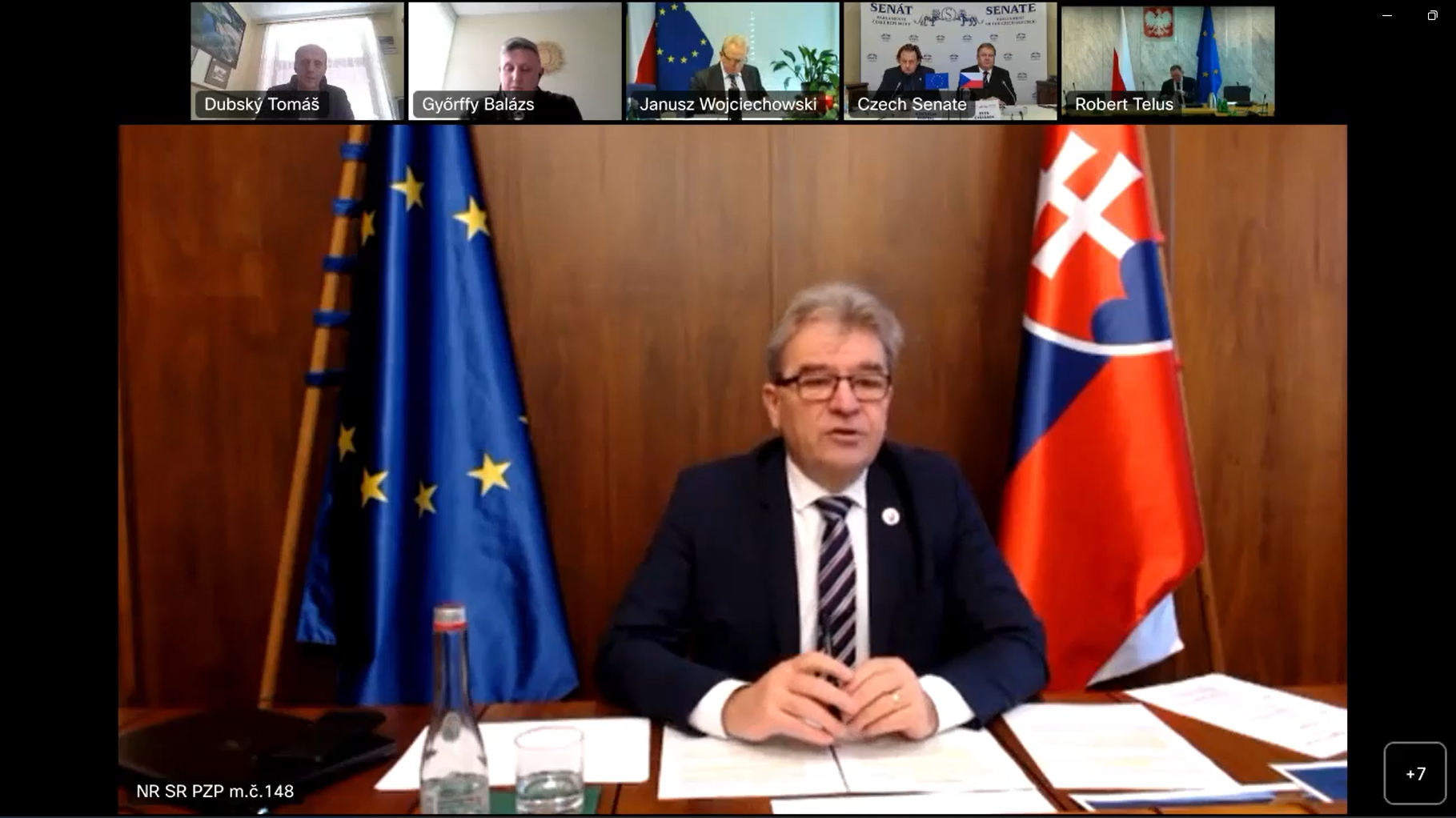
Under the Slovak Presidency of the Visegrad Cooperation, a videoconference was held by the National Council of the Slovak Republic for V4 Agricultural Committees on 19 December 2022, attended by European Commissioner for Agriculture Janusz Wojciechowski. The online discussion was held as a follow-up to the statement adopted by V4 Agricultural Committees at their meeting on 13-14 October in Bratislava and sent to the Commissioner. At the meeting of V4 Committee Chairs, the Hungarian National Assembly was represented by Balázs Győrffy, Vice-Chair of the Committee on Agriculture, who also led the Hungarian delegation at the Bratislava meeting in October.
In his contribution, Balázs Győrffy called on the Commissioner to support amending the legislative proposal on the use of pesticides, the promotion of irrigation improvement and awareness-raising of the role of farmers in protecting the environment, while also highlighting the importance of adapting the requirements for inflows of products into the EU to the expectations towards EU producers.
Commissioner for Agriculture Janusz Wojciechowski said that he fundamentally supported what was set out in the statement adopted at the meeting in October and then enquired about positions on the negative impact of the Russo-Ukrainian War on the agricultural sectors and markets of V4 countries.
At the suggestion of Robert Telus, Chairman of the Committee on Agriculture and Rural Development of the Polish Sejm, the participants agreed to prepare another document on the impact of significantly increased Ukrainian imports due to the war in Ukraine on the agriculture of V4 countries and submit it to the Commissioner for Agriculture.
Jaroslav Karahuta, Chairman of the Committee on Agriculture and Environment of the National Council of the Slovak Republic, stressed that proportionality and appropriate measures on products from third countries are needed to ensure agricultural sustainability. He thanked the Commissioner for his attendance and expressed his conviction that regular discussions with such a scope could benefit both our parliaments and the European Commission.
.




